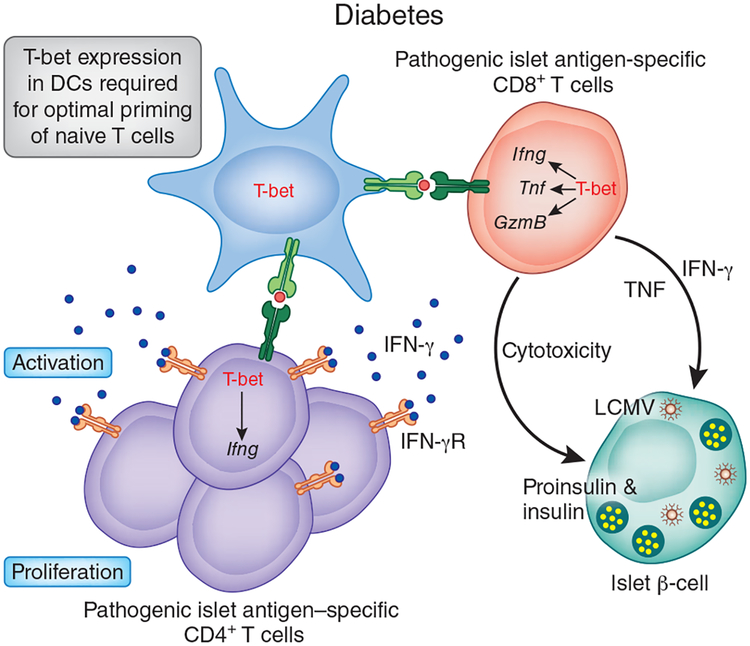Figure 3.
Role of T-bet in the pathogenesis of autoimmune diabetes. T-bet-deficient nonobese diabetic mice are protected from developing type 1 diabetes because of defects in their innate and adaptive immune systems. The priming ability of T-bet-deficient DCs is diminished, which results in the activation of fewer autoreactive TH1 cells. Less cytokine production by T-bet-deficient TH1 cells, which also have defective migration to the pancreas, causes the overall low-grade inflammatory response in the target organwith minimal damage. T-bet expression in CD8+ T cells is required for their pathogenicity in the RIP-LCMV transgenic model of virus-induced type 1 diabetes. T-bet-deficient mice have many fewer CD8+ effector-memory cells that produce IFN-γ and TNF and also have poor migratory potential.
Katie Vicari

